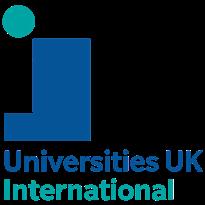Decide if the UK is the best study destination for you
Understand what course options are available
Prepare to come and study in the UK
Gather and submit the documents you need for your visa
Completed the British Council Education Agent Training Programme
Agents that have completed the training are listed on the British Council website: https://www.britishcouncil. org/education/agents-counsellors/database
Supported

Identify institutions that meet your academic and lifestyle preferences
Apply to your chosen institutions
Committed to the National Code of Ethical Practice for UK Education Agents
The National Code sets out the behaviours and values that are expected of education agents that represent the UK.

Use this checklist to identify good quality education agents:
Do the agent offices/staff seem professional and friendly?
Is the education agent listed on the British Council website: https://www.britishcouncil.org/education/agents-counsellors/database
If you know where you want to apply, is the education agent listed as an official representative or partner on the school/college/university website?
What are other students saying about the education agent on social media? Note: Even the best agent can’t make everybody happy but this will help you decide if they are right for you.
Here are some questions to ask that will help you select a good education agent:
Questions
Can you tell me about the education opportunities offered in the UK?
Do you comply with the UK’s National Code of Ethical Practice for UK Education Agents?
Are you paid a commission by the schools/colleges/universities that you promote?
Do you charge any fees? Please can you provide me with a list of all potential fees, what they are for, and when they are expected?
Are you licensed to act as an education agent?
What you should expect from the education agent
A well trained agent will explain the UK education system, the different regions of the UK and the schools/colleges/universities they represent. They should give you a good understanding of the many options open to you in the UK.
They should know what the National Code is and show you a copy. Familiarise yourself with the National Code to see how your education agent is doing.
Most schools/colleges/universities pay a commission for the agent to represent them, and this covers the agent’s operating costs, so the answer will usually be ‘yes’. Regardless of whether the agent is paid a commission or not, they should give you high-quality and unbiased advice.
Agent fees are typically covered by the school/college/university, but education agents may charge fees for some additional services. They should be clear with you at the start of the process if they will charge you any fees and what they are for. If you are unsure you may check with the institutions that you plan to apply to.
The UK does not require a licence for agents to recruit students to UK universities, colleges or schools but agents operating in your country may require a local licence. Do your research beforehand to find out if this applies in your own country. This may include checking with your government’s education department or on the British Council’s website.
Are you a licensed UK immigration advisor?
When did you last receive training on UK visa regulations?
Can I speak to a former student of yours who is currently studying in the UK?
Will you offer me any additional support after I arrive in the UK?
There are many good education agents that are not licensed UK immigration advisors. They are still experts that can help you with your student visa application. It is important that you receive clear and accurate advice as the wrong immigration advice could have serious consequences. In the UK licensed advisors will be registered with the OISC or the Law society. Check with government sources in your own country and beware of trusting unverified information such as online forums.
Good education agents will regularly attend training by their partner institutions, the British Council, and UK Visas and Immigration (UKVI). For more information and advice on visa and immigration, please visit https://www.ukcisa.org.uk/Information-Advice/Visas-and-Immigration/Student-immigration-the-basics
Most education agents keep in touch with the students they place. Speaking to them can be a useful way to find out about their experiences.
Some education agents offer additional help after you arrive in the UK, e.g. providing visa updates, accommodation support, etc.
Remember, where and what you study is your decision.
Education agents are there to help you make an informed decision. Not to decide for you. Be open to any ideas they may suggest but remain firm about what you want. If you believe that you are not receiving the best service, contact the institutions you are applying to. Seek suggestions for an alternative education agent and get them to investigate your complaint. Similarly, if you have had a good experience support other students by recommending them and providing reviews.
If your education agent offers to hold money, apply for or offer loans or make fee payments on your behalf, please check with your chosen institution if this legitimate.
